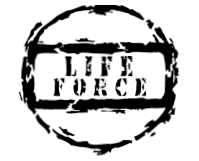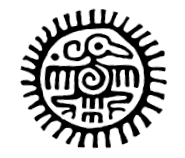Week of May 15th, 2025
Is Pronoia Still a Valid Idea?
If you truly loved yourself, you could never hurt another.—Sharon Salzberg

FREE WEEKLY NEWSLETTER
Here's a link to my free weekly email newsletter, featuring the Free Will Astrology horoscopes, plus a celebratory array of tender rants, lyrical excitements, poetic philosophy, and joyous adventures in consciousness. It arrives every Tuesday morning by 7:30 am.
Sign up here for your free subscription.

IS PRONOIA STILL WORTH WIELDING?
In 2005, I published the first edition of my book Pronoia Is the Antidote to Paranoia: How the Whole World Is Conspiring to Shower You with Blessings.
In 2009, I published the revised and expanded edition, which has 55% additional new material beyond the first edition.
Is 2022, I published an ebook version of PRONOIA that had even more added material.
Here are my meditations:
Is pronoia still a philosophy worth wielding? Can we justify its continued viability in an age when bigoted authoritarianism has hijacked so many imaginations? When the US government is actively seeking to destroy democracy and harm millions of Americans?
Does it make logical or soulful sense to embrace crafty optimism and radical hope now that the climate crisis has degenerated into the climate emergency?
Do we dare celebrate anything at all in the face of the teeming mobs that proudly proclaim their support for the ever-more bloated malfeasance of patriarchy and plutocracy and militarism and science-phobia?
As I have contemplated these questions, my mission has been to embody humble objectivity. In the spirit of curiosity and discernment, which guide my practice of pronoia, I didn't want to automatically assume that my previous ideals should be my future ideals.
I even considered the possibility that maybe I should abandon my ebullient quest to propagate beauty and truth and justice and love—and surrender to the seemingly reasonable mandate of cynicism.
One set of evidence that influenced my ruminations is the cascade of progressive advances that have blossomed alongside the deterioration. The joyous upgrades are too numerous to list in their entirety, but I'll name a few.
• Same-sex marriage is now widely supported. Discrimination against gay people has declined precipitously.
• Breakthrough improvements in welcoming broader definitions of gender identity are far from complete, but they have generated significant shifts.
• Young people are extraordinarily liberal and progressive, to a degree that surpasses all previous generations.
• The traditional family, with its rigid gender roles and retrograde values, is in steep decline.
• More than half of newborn babies in the US are racial or ethnic minorities, as are the majority of K-12 students in public schools. And minorities are progressives’ strongest constituency.
• The #MeToo movement has been highly effective in checking sexual abuse and harassment.
• A robust majority of Americans wants the government to guarantee healthcare and believes discrimination against Black people is still a big problem. Two-thirds of Americans express some support for the Black Lives Matter movement.
• There are well over a million organizations engaged in a global crusade to improve social justice, economic conditions, human rights, and environmental health. It thrives without centralized leadership, charismatic front people, or a fixed ideology.
• Author and activist Rebecca Solnit, a savvy critic of our era's sickness, nonetheless exults in "the tremendous human rights achievements" that have burgeoned: "not only in gaining rights but in redefining race, gender, sexuality, embodiment, spirituality and the idea of the good life."
+
For three weeks, I meditated daily on my questions about the ongoing usefulness of pronoia. I shed all my assumptions and theories so I could embody the innocence of beginner's mind.
Here's what I concluded. No matter what the state of the world might be, it's my pragmatic job and my soul task to perpetrate regeneration and awakening and inspiration and liberation.
Borrowing from Charles Dickens, I proclaim it to be irrelevant whether it's the best of times or the worst of times, the season of light or the season of darkness, the spring of hope or the winter of despair. My goals are the same in all cases.
And the truth is, I can't possibly know in any absolute way how terrible or wonderful the collective state of affairs is—not now, not 20 years or a thousand years ago, not ever. I'm not smart enough to accomplish that unachievable understanding. Nor can I ever gather sufficient information to do so.
I'll go further. None of us has the capacity to foretell the fate of the world. Not psychics, not economic forecasters, not doomsayers, not trend analysts, not interdisciplinary futurists, not indigenous shamans. No one!
A strong case can be made that in the next 100 years, everything will collapse into a miserable dystopia. A strong case can also be made that we are evolving, albeit with a bumpy rhythm, in the direction of paradise. And there is not a single genius anywhere on the planet who has the wisdom to formulate an incontrovertible prediction.
“Whether we are on the threshold of a Golden Age or on the brink of a global cataclysm that will extinguish our civilization is not only unknowable, but undecided,” said the founder of the World Future Society.
Anyone who asserts they do know is cherry-picking evidence that rationalizes their emotional bent. The variables are chaotic and abundant and beyond our ken.
In light of the fact that no one knows nuthin', the eminently practical and sensible approach is to do all we can to create a Golden Age—not just for ourselves, since that wouldn't be a real Golden Age— but for every human and every creature on earth.

Now I'll bring in some helpers in to bolster and refine my thoughts about PRONOIA.
First, here's one of my mentors, progressive historian Howard Zinn: "An optimist isn’t necessarily a blithe, slightly sappy whistler in the dark of our time. To be hopeful in bad times is not just foolishly romantic. It is based on the fact that human history is a history not only of cruelty but also of compassion, sacrifice, courage, kindness.
"What we choose to emphasize in this complex history will determine our lives. If we see only the worst, it destroys our capacity to do something. If we remember those times and places—and there are so many—where people have behaved magnificently, this gives us the energy to act, and at least the possibility of sending this spinning top of a world in a different direction.
"And if we do act, in however small a way, we don’t have to wait for some grand utopian future. The future is an infinite succession of presents, and to live now as we think human beings should live, in defiance of all that is bad around us, is itself a marvelous victory."
+
Here's another one of my politically progressive mentors, Noam Chomsky: "Optimism is a strategy for making a better future. Because unless you believe that the future can be better, you are unlikely to step up and take responsibility for making it so. If you assume there is no hope, you guarantee there will be no hope."
+
Here's one of my heroes, whom I cited earlier, Rebecca Solnit: "Hope is not a lottery ticket you can sit on the sofa and clutch, feeling lucky. It is an axe you break down doors with in an emergency.
"Hope should shove you out the door, because it will take everything you have to steer the future away from endless war, from the annihilation of the earth's treasures and the grinding down of the poor and marginal.
"To hope is to give yourself to the future—and that commitment to the future is what makes the present inhabitable.”
+
Another one of my heroes, author and activist Naomi Klein, tells a story about the time she traveled to Australia at the request of Aboriginal elders. They wanted her to know about their struggle to prevent white people from dumping radioactive wastes on their land.
Her hosts brought her to their beloved wilderness, where they camped under the stars. They showed her "secret sources of fresh water, plants used for bush medicines, hidden eucalyptus-lined rivers where the kangaroos come to drink."
After three days, Klein grew restless. When were they going to get down to business? "Before you can fight," she was told, "you have to know what you are fighting for."
+
Poet W. S. Merwin: "On the last day of the world, I would want to plant a tree."
+
Author and activist Helen Keller: "No pessimist ever discovered the secret of the stars, or sailed to an uncharted land, or opened a new doorway for the human spirit."
+
Author Rachel Pollack: "We cannot predict the results of healing, either our own or the world around us. We need to act for the sake of a redemption that will be a mystery until it unfolds before us."
+
Educator David L. Cooperrider: "Almost without exception, everything society has considered a social advance has been prefigured first in some utopian writing."
+
Sociologist Fred Polak: "The rise and fall of images of the future precede or accompany the rise and fall of cultures. As long as a society's image is positive and flourishing, the flower of culture is in full bloom. Once the image begins to decay and lose its vitality, the culture does not long survive."
+
Martin Luther King, Jr.: "Darkness cannot drive out darkness; only light can do that."
+
Author and activist Rebecca Solnit again: "Hope locates itself in the premises that we don't know what will happen and that in the spaciousness of uncertainty is room to act. When you recognize uncertainty, you recognize that you may be able to influence the outcomes—you alone or you in concert with a few dozen or several million others.
"Hope is an embrace of the unknown and the unknowable, an alternative to the certainty of both optimists and pessimists. Optimists think it will all be fine without our involvement; pessimists take the opposite position; both excuse themselves from acting.
"It’s the belief that what we do matters even though how and when it may matter, who and what it may impact, are not things we can know beforehand. We may not, in fact, know them afterward either, but they matter all the same, and history is full of people whose influence was most powerful after they were gone."
+
Author Agatha Christie: "I like living. I have sometimes been wildly, despairingly, acutely miserable, racked with sorrow; but through it all I still know quite certainly that just to be alive is a grand thing."




